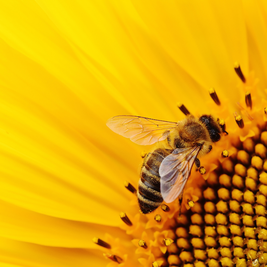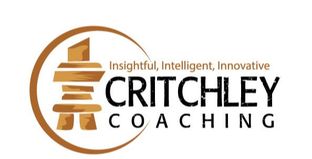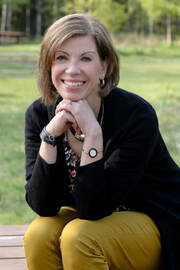
It’s been a long winter. Long. This week on our hike we were begging spring to arrive, maneuvering through snow, ice, slush and even some mud, as we listened hopefully for the song of a spring bird. Is that possibly a robin, we wondered, peering into brush and trees where many little winged friends were singing? Alas, no robin song was heard, and no robins found. I suspect there have been a few sightings in the city, but not on our hike and not in our backyard where we still have a healthy three-entrance snow tunnel, and piles of snow well over three feet high.
While I doubt there is much chance of anyone heading out to their garden anytime soon, a ‘normal-for-most-years’ reminder caught my eye this week.
According to the flyer, butterflies, bees, and other pollinators overwinter in leaves and gardens. Until it is consistently above 10C they will not revive themselves and get to work. We’re not to do our yard work until then, or we will literally be throwing them out.
I haven’t seen as much as a fly or an ant yet this year, and we certainly haven’t had any temperatures above 10°C. Yet, the cute little bee on this little flyer reminded me that soon we will see bees, and soon those industrious little insects will become hyper focussed on one thing, and one thing only. Pollination.
When a bee visits a flower or blossom, it’s usually there to collect nectar. The nectar fills the bee up, providing it with energy, and providing the ingredient for it to make honey. But while it’s filling its belly with nectar, some of the pollen from the flower ends up sticking to the fuzzy part of the bee. When the bee heads to the next flower or blossom, again to find nectar, some of the pollen it picked up, gets rubbed off on that flower. This transfer of pollen helps the plants to be able to continue to grow. Without the little bees, and the process of pollination, we would lose many of our valuable food sources.
Oh, to be a bee! To live a life where you know with certainty, exactly what you are put on earth to do and to not become distracted by other things.
All of us are pollinators. Alas, almost none of us arrive on earth hard-wired to know, without a shadow of a doubt, what our purpose is. Each time we have an interaction, any interaction, we pollinate either the other person or the relationship we have with them. The difference between us and the bees is this, bees’ purpose is to encourage life, to promote growth and more and more lately, to ensure certain plants, and therefore the animals who consume them, do not become extinct. Bees give the flowers and plants maximum chance to reach their full potential. Many of us, on the other hand, are careless pollinators. While we certainly affect each person and relationship we touch, often the amount of brain power we use creating conscious, positive, growth-filled interactions, would be dwarfed by the thinking of a bee. A sobering thought is this, considering bees’ brains only contain about a million neurons, while human brains have about 100 billion!
I have some wonderful pollinators in my life. When I spend time with them, some of their wisdom, confidence, kindness, talent, and support rub off on me. It’s no surprise, these are the people I’m attracted to. They draw me in, in some ways they are as hard to resist as flowers are for bees. I hope when I leave them, I carry some of their positive qualities with me to drop into my next interaction. I hope too, I leave some positive pollen behind.
If only we used just a tiny part of our human brains, say, one million neurons, to pollinate like a bee. We might just end up encouraging life, promoting growth, and giving each other the maximum chance to reach our full potential.
Harold, our across the street neighbour, is a pollinator. He never fails greet us with a smile and some kindness. A month or so ago he arrived with some of his wife, Janie’s, oliebolen, fresh from the deep fryer. This week he arrived with a little tease to make us smile, and dropped off some of his kindness in the form of catching us up on news in his family. In return, by the time he left after a short visit, Jim, upon learning Harold was due to have some surgery, had made the offer to help him out however he could while Harold was recovering. It’s magical how much good can come from a little pollination between humans.
My inquiry for you this week is, ‘How well am I pollinating?’
Elizabeth is a certified professional Leadership Coach, and the owner of Critchley Coaching. She is the founder and president of the Canadian charity, RDL Building Hope Society. She works with corporations, non-profits and the public sector, providing leadership coaching. She creates and facilitates custom workshops for all sizes of groups and has expertise in facilitating Strategic Plans for organizations. Contact Elizabeth to learn how to find out how to learn to pollinate like a bee.


 RSS Feed
RSS Feed